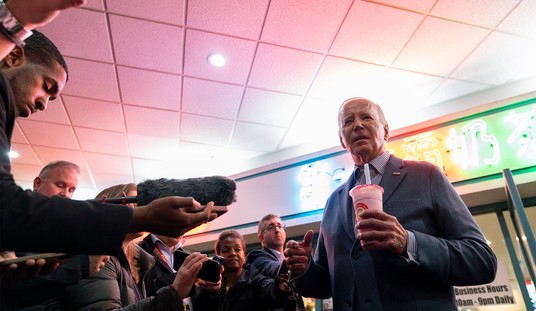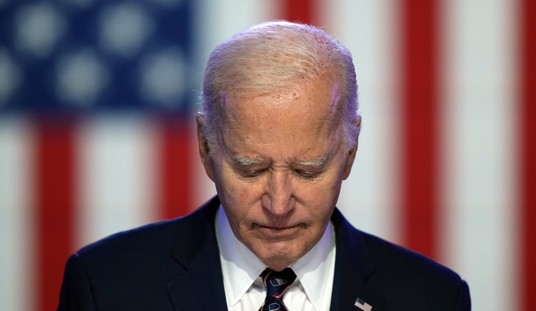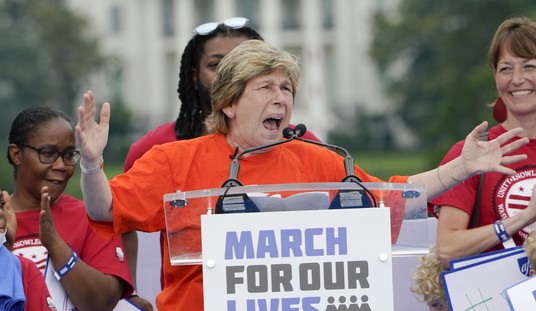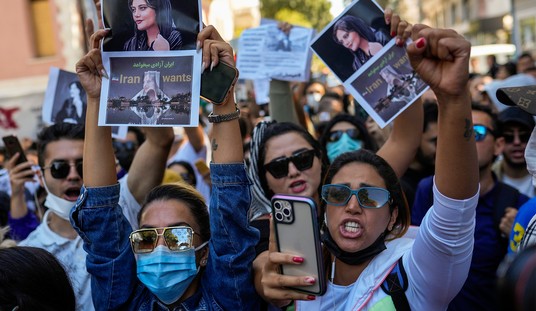Barack Obama arrived in the presidency promising to the SEIU that its agenda would be his agenda. He has made good on that in every way he can, but how is it actually working out for them?
Today, the US Supreme Court smacked the SEUI down for what amounted to theft of workers’ pay. The union was levying “special fees” on workers, even those who did not want to be union members but whom state laws compelled to join, and using the proceeds from those fees to fund political action. The workers disagreed with the politics the union pushed, but had no opt-out, so they sued. The Supreme Court sided with them, in a 7-2 ruling that will result in Big Labor losing one of its strategic money streams nationwide.
On June 5, Big Labor suffered a string of serious defeats. The highest profile of those was obviously in Wisconsin, where Big Labor funded a controversial recall of Gov. Scott Walker and a handful of state senators for enacting reforms to public union members’ lavish benefits. Those benefits are strangling state and local budgets. Where Walker’s reforms have been fully enacted, they have saved money for the local governments, saved public sector jobs and reduced taxpayers’ property taxes. That’s quite a nice trifecta, but Big Labor assaulted Walker and tried kicking him out of office. Big Labor lost, big, in the blue state that was the cradle of the labor movement.
On the same day in California, the cities of San Jose, San Diego and El Cajon passed public union benefit reforms, or started the process that will lead to such reforms. Again, voters in a blue state voted of their own free will to reject Big Labor’s message and restore some sanity to their local government budgets.
Prior to these votes, in February 2012, Indiana broke the Rust Belt by becoming the first state in that region to enact a state right-to-work law. As in Wisconsin, Big Labor pitched a public fit, and as in Wisconsin, it lost. Indiana’s law moves the nation closer to becoming majority right-to-work, with 24 states having right-to-work laws on the books and 26 remaining union states. Among other things, right-to-work does what it says it does, and makes union membership voluntary. When union membership becomes voluntary, it goes down. Wisconsin serves as powerful evidence, according to the Wall Street Journal:
Public-employee unions in Wisconsin have experienced a dramatic drop in membership—by more than half for the second-biggest union—since a law championed by Republican Gov. Scott Walker sharply curtailed their ability to bargain over wages and working conditions.
—
Wisconsin membership in the American Federation of State, County and Municipal Employees—the state’s second-largest public-sector union after the National Education Association, which represents teachers—fell to 28,745 in February from 62,818 in March 2011, according to a person who has viewed Afscme’s figures. A spokesman for Afscme declined to comment.
Much of that decline came from Afscme Council 24, which represents Wisconsin state workers, whose membership plunged by two-thirds to 7,100 from 22,300 last year.
Just to drive the point him, this is Wisconsin.
Reforms have been happening more quietly outside the war in Wisconsin. In March of this year, Michigan’s legislature passed a bill prohibiting the teachers’ union from using schools to collect union dues. (Texas enacted a similar measure via a ruling back in 2010.) Going back a little over a calendar year to April 2011, Massachusetts (bluest of blue states) enacted public union pension reform. California’s and Massachusetts’ moves break the left’s spin that these union reforms are solely partisan measures: They are fiscal measures, and Walker’s victory plus today’s Supreme Court ruling make their spread to other states far more likely.
Big Labor may have made a colossal strategic blunder in identifying too closely with one party and the current president. That has made painting them as political operatives, which they are, far easier for critics. The string of defeats Big Labor has suffered leave it reeling and in a weaker position to muscle the Democrats or threaten Republicans.
Ironically, President Obama may go down in history as the president who presided over the death of Big Labor, which under his term has suffered a very very very bad, no good year.








Join the conversation as a VIP Member